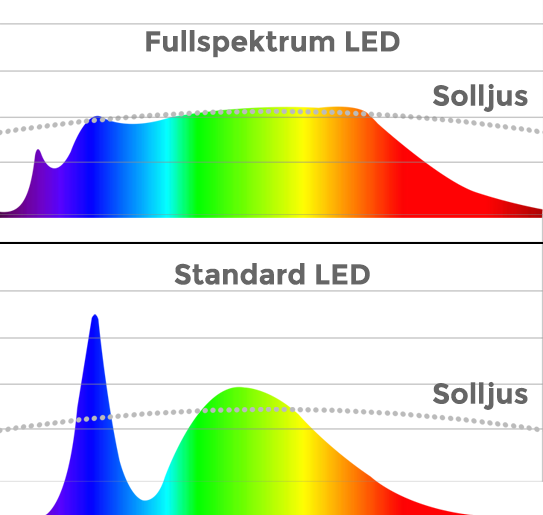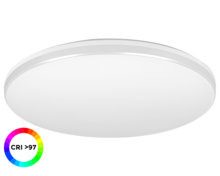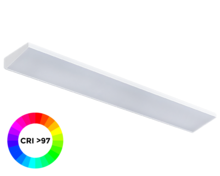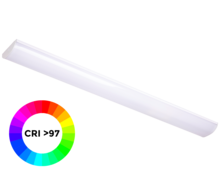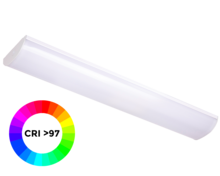A light that imitates sunlight
Full Spectrum LED refers to light that more closely mimics daylight and has a CRI (Color Rendering Index) greater than 97. The high color rendering means it is better at reproducing the true colors of objects.
The fact that we tend to feel better on a sunny day compared to a cloudy one can be linked to the idea that full spectrum lighting is more ideal for our health, as there are similar differences between natural daylight and the artificial light we are exposed to daily. Furthermore, full spectrum lighting is also more comfortable and less harmful to our eyes.
To measure the color temperature of full spectrum LED, 15 reference colors are used, and an average is then taken. By performing the measurement in this way, the result is a more balanced color distribution and helps avoid overexposure to blue light, which can damage the eyes.
With full spectrum, a light that closely resembles sunlight is achieved. Here, a comparison between "regular" LED diodes, full spectrum, and sunlight is shown.




